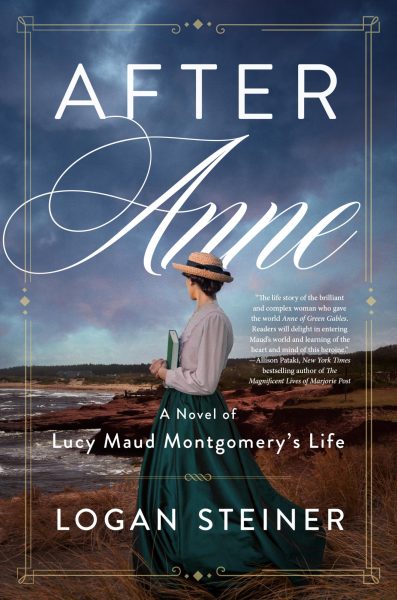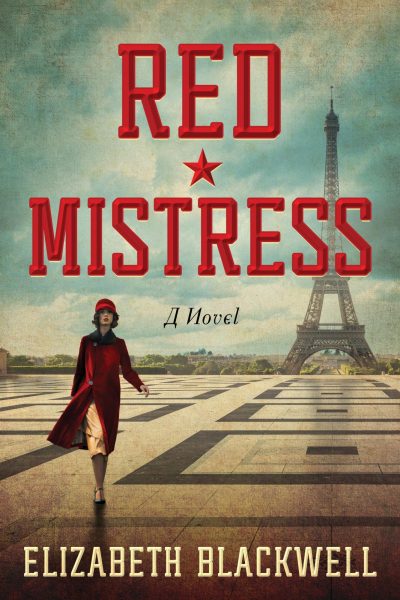“What would I have done if I had been there?”
For those interested in writing historical fiction, this question is key to creating engaging characters and a captivating plot, according to two authors who work in the genre.
Logan Steiner discussed her historical fiction debut novel and shared insights into the genre with fellow historical fiction writer Elizabeth Blackwell at the American Writers Museum in Chicago on July 9.

Steiner’s novel, “After Anne,” released on May 30, tells the life story of Lucy Maud Montgomery, author of “Anne of Green Gables.” Steiner, a lawyer by day and writer by night, dedicated about eight years to the production of her book, researching, writing, editing, finding an agent, and publishing.
Blackwell is the author of “Red Mistress,” another historical fiction novel about a woman during the Russian Revolution. The two authors went into depth about the truth about writing historical fiction.
Blackwell said that historical fiction writers often choose a person or event that fascinates them. When Blackwell asked Steiner why she chose Montgomery, Steiner said it all started with “Anne of Green Gables” and her love for the character.
“ ‘Anne of Green Gables’ was such a cherished part of my growing up,” she said. “I was really interested in exploring the life of a creator whose work had meant a lot to me.”
Steiner said she used Montgomery’s diaries to learn more about her, and let her imagination fill in blanks left in the diaries.
“They were such a resource for me as a fiction writer in [terms of] trying to get as close to Maud’s thinking and inside her head as much as possible,” Steiner said.
She said it was important for authors to immerse themselves in the characters, really thinking about what they would do if they were them. Steiner even said she could even hear Maud speaking to her in her head as she wrote, just as Maud could hear Anne speaking to her as she wrote “Anne of Green Gables.”
“It took a little while to immerse myself to the point where I got there, but absolutely,” Steiner said.
Seiner also talked about the importance of gaining support from others when writing, making sure you have a voice telling you that you can do it.

“One of the biggest things I’ve come to realize is how big of a role other people can play,” Steiner said. “To learn to be less alone, and to learn to open up my writing to others has been a huge part of the journey.”
Blackwell brought up an interesting point about relevance to the modern world in historical fiction. She said that while historical fiction characters should not sound as if they live today, well-written historical fiction should offer relevance to modern readers, despite being set in the past.
“A story that is solely set in the past about people doing old-timey things that we can’t relate to at all does not really engage me as a reader,” she said.
Like Steiner, Blackwell talked about immersing herself in the world she was writing about, also saying that feeling like she is somewhere else makes writing even more enjoyable because for a few moments, she does not have to be worried about reality.
“The historical fiction that I write, I think of it as time-travel escapism,” Blackwell said. “I just want to be immersed somewhere else.”
Both authors mentioned the importance of looking at the world from your character’s point of view.
“As I was in these historical worlds, the question was always: ‘What would I have done if I had been there?’ ” said Blackwell.
Blackwell talked about how characters in the past cannot be judged by modern expectations. However, they have to have a reason for acting the way they are, if they are acting in a way that would not be acceptable today.
Blackwell said that if writers want to create a compelling read, they have to make their characters understandable for who they were at the time. If a character is simply described as “bad” because of the way they acted according to expectations during that historical period, then that doesn’t create a lot of emotion for the reader.
A unique aspect of historical fiction is the significance of research. Not only do historical fiction writers have to write a whole story, they also have to make sure everything in their story is historically accurate through in-depth research.
Blackwell said that it’s important to talk to editors to make sure all the details in the novel — whether it be what the characters ate for dinner or what car they drove — are accurate. Steiner added that an outline is really important when conducting research as well.
“There’s endless amounts of reading to be done about and by L.M. Montgomery, and I think that having a working outline allowed me to know the bits and pieces that I was most interested in,” she said.
The authors emphasized the importance of knowing what parts of your research to include in your story.
“You have the right dates; you have the timeline, but you’re not going to include everything,” Blackwell said. “You’re choosing your version of that history.”
(For more information about Logan Steiner and “After Anne,” visit her website HERE. For more information about Elizabeth Blackwell and “Red Mistress,” visit her website HERE.)
–July 16, 2023–





